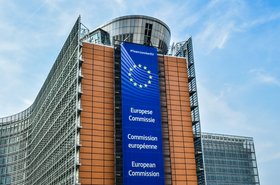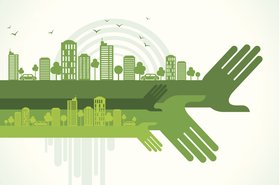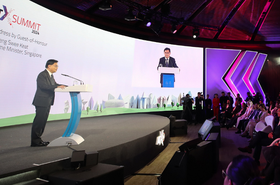European regulations are pushing data center operators to get more real about moving to renewable energy and increasing the efficiency of their facilities. Perhaps there are other areas where regulations might persuade operators to be more active.
The European Energy Efficiency Directive (EED) will require operators to report on a lot of aspects of their data centers: energy use, efficiency, the amount of renewable energy they use, and even the amount of waste heat they pass to others to reuse.
When push comes to shove
It’s been observed that this is creating a greater incentive to actually become carbon neutral than the industry’s previous efforts to self-regulate. Previously, some operators have made promises to be carbon neutral, through the voluntary Carbon Neutral Data Centre Pact, under their own steam.
The EU puts it more starkly: “Data centers and telecommunications networks CAN and SHOULD be carbon neutral by 2030”.
The EU as a third party is crucial in this. It’s not enough for operators to claim to be carbon neutral. They have to convince a third party of legislators.
Those legislators may not be data center professionals. They may not understand the constraints of the sector immediately. But it’s up to the industry to explain and convince them that they have met the requirements.
That’s just the same hurdle that other industries will have to clear, as the EED aims to apply to all industries in Europe.
And it’s starting with that strict reporting regime, which includes reporting on energy use, water use, carbon emissions, and waste heat reuse. It’s expected that the reporting regime will be followed by demands to meet targets, much as the European Carbon Neutral Data Centre Pact proposed, but under EU control.
As with all European directives, it’s up to the individual states how they implement energy efficiency. Germany is going ahead with rules that will require data center operators to achieve set levels of power usage efficiency, and renewable energy use. It also requires them to start providing their waste heat for reuse.
Waste heat reuse
Regulations look like boosting heat reuse, a potential source of energy efficiency, which the industry has been very slow to adopt.
It’s been said that the idea is sound as long as it is put forward in a business like way.
Governments could well mandate data center heat reuse, as it fits very well with moves to decarbonize heating.
Data center waste heat is by definition electrical, and if the electricity comes from renewable sources, it is decarbonized. Some companies have been taking data processing to places where its waste heat is a boon, notably Qarnot in France, and Deep Green in the UK, which is using Edge data centers to heat swimming pools.
In a podcast, Deep Green CEO Mark Bjornsgaard told DCD that the total requirement for building heating in Europe is greater than the amount of energy used in data centers, so we could shift digital work to where the heat is required, and all the energy used by data centers would be doing two useful jobs.
Not all data center work can make this move, but a nudge from the legislators and it’s certain that more of it will move.
What about load balancing?
In a discussion this week about decarbonization, I thought of another method to improve data centers’ environmental credentials, which is currently not proving popular.
Data centers are built with dispatchable energy in their UPS batteries and backup systems. For years now, it’s been possible to make that available to the grid, under careful control, through schemes like demand response and fast frequency response.
In certain circumstances, this can have major benefits to the grid, avoiding the need to switch on fossil power generation.
Yet it is rarely applied right now.
Microsoft has tested it in Dublin and announced plans to do it worldwide. In Finland, Forum has connected Telia’s headquarters data center batteries to the grid. Beyond that, we only hear of pilots and tests, like Eaton’s long-running promotion of UPS-as-a-reserve, and Schneider's promotion of the idea.
The idea could help struggling grids. Ireland has considered the more extreme measure of asking data centers to switch to backup power during winter surges in demand.
I wonder if governments and grids should consider requiring data centers to take part in demand response schemes.
As we have seen with heat reuse, it might at least get the industry to start talking about the difficulties in concrete terms.






